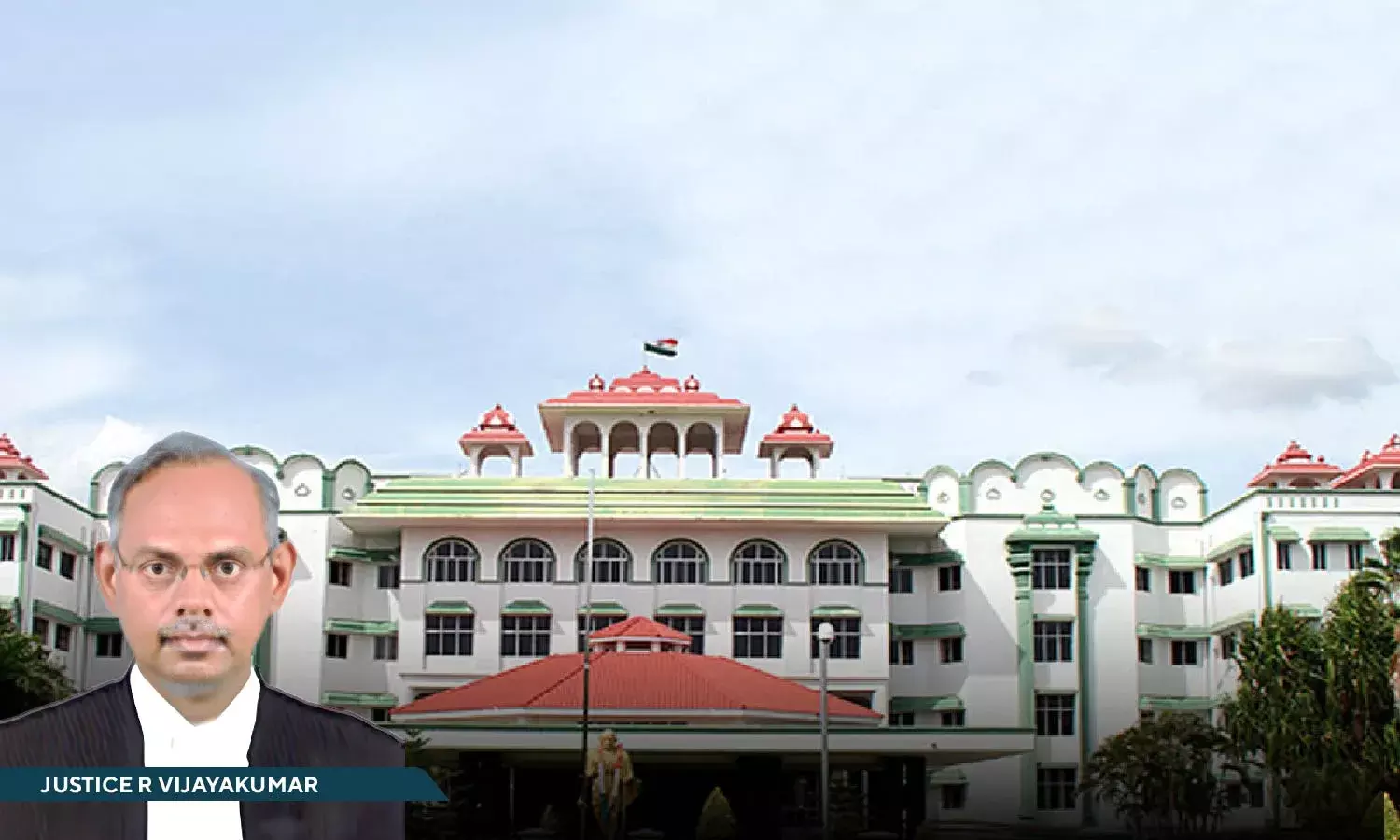States Will Be Vicariously Liable For Acts Of Its Officials Which Results In Violation Of Privacy, Loss Of Reputation- Madras HC

Justice R. Vijayakumar, Madras High Court, Madurai Bench
The Madras High Court Madurai bench has directed the State Government to pay compensation of Rs. 2 lakhs to a woman who was falsely implicated in a case under the Immoral Traffic Prevention Act, 1956 (Act).
The Court also held that the State could not shirk their responsibility or its vicarious liability for the acts of its officials which had resulted in violation of the privacy and loss of reputation to the petitioner, by claiming that the officers involved were not performing their official duty.
The Bench of Justice R. Vijayakumar observed that “In view of the above said undisputed facts, it is clear that the right of privacy and reputation of the writ petitioner have been sullied by the act of the police officials for which the State is certainly responsible. The State cannot escape from contending that the officials at the station level have unauthorisedly done the said act and hence, the State is not liable for the same.”
“In view of the above said facts and the judgement referred supra, this Court is of the view that the official respondents have violated the privacy and harmed the reputation of the writ petitioner. Therefore, the State is liable to pay compensation.” the bench further added.
Advocate T. Lajapathi Roy appeared for the petitioner and Additional Advocate General Veera Kathiravan along with Special Government Pleader M. Lingadurai appeared for respondents no.1 to no. 3, Government Advocate RM. Anbunithi appeared for respondents no. 4 to 6.
The case of the petitioner was that a complaint was filed against the petitioner under various provisions of the Act. The petitioner was arrested and was detained at Women Home Madurai for a period of 13 days and thereafter, was enlarged on bail.
The petitioner has now approached the High Court and has claimed compensation of one crore rupees from the State and the concerned authorities for the disrepute suffered by her and her family due to foisting of false case and false arrest.
The High Court noted that in the detailed inquiry conducted by the Deputy Superintendent of Police, it was revealed that the case registered as against the petitioner under the Act was wrong and was foisted due to personal tenancy disputes between the private respondents. Moreover, the defacto complainant in his statement under Section 164 of the CrPC revealed that he was not aware of the complaint and that he was involved in a traffic offence, for which he was taken to the Police Station and the Police Personnel made him sign on a blank paper.
Based on this report, the petitioner approached the High Court and the charge sheet against her was subsequently quashed.
The counsel for the respondent submitted that the Inspector had abused the process of law and thus there was no vicarious liability since he was not in discharge of his his duty authorised by law.
The High Court said that “...even after the report of the Deputy Superintendent of Police, DCB, Nagercoil, for nearly 4 years, the police authorities have continued with the prosecution. The State has not initiated any action as against the police officials who were found to be guilty in the report of the Deputy Superintendent of Police, DCB, Nagercoil dated 29.04.2011.”
Therefore, the Court said that the State could not take advantage of the enquiry and deny paying compensation to the petitioner, and accordingly, the Writ Petition was allowed.
Cause Title- JS v. The State of Tamil Nadu

